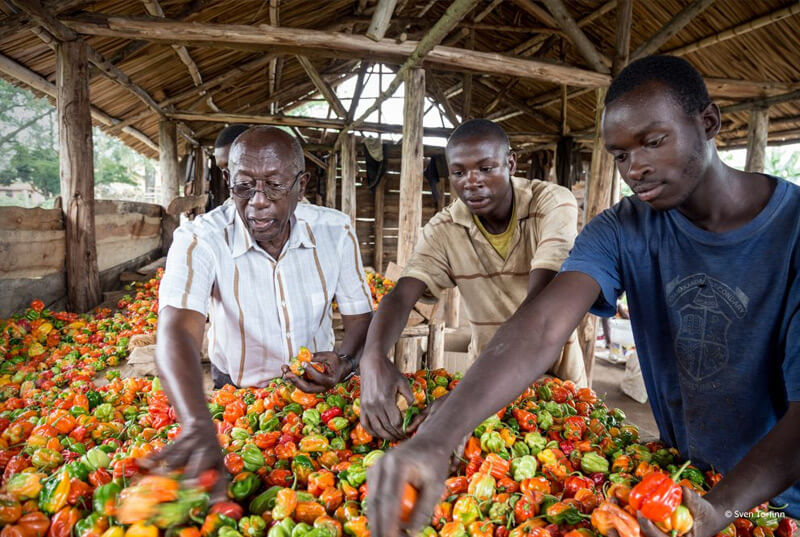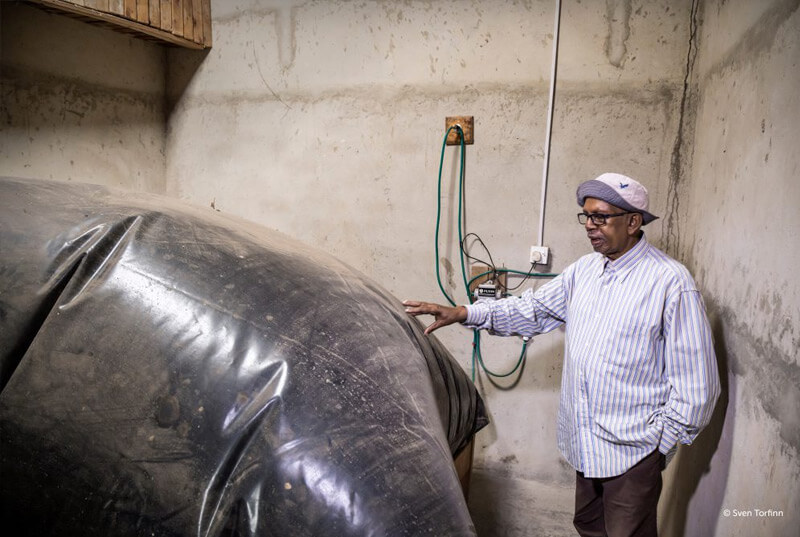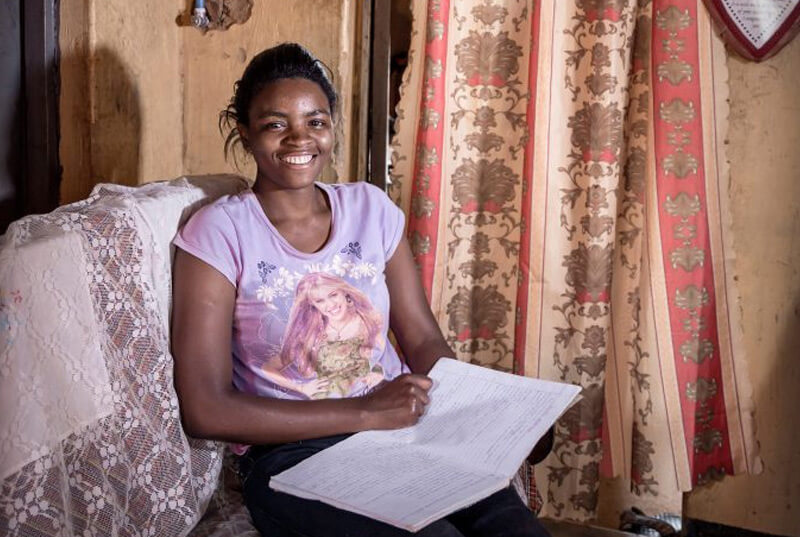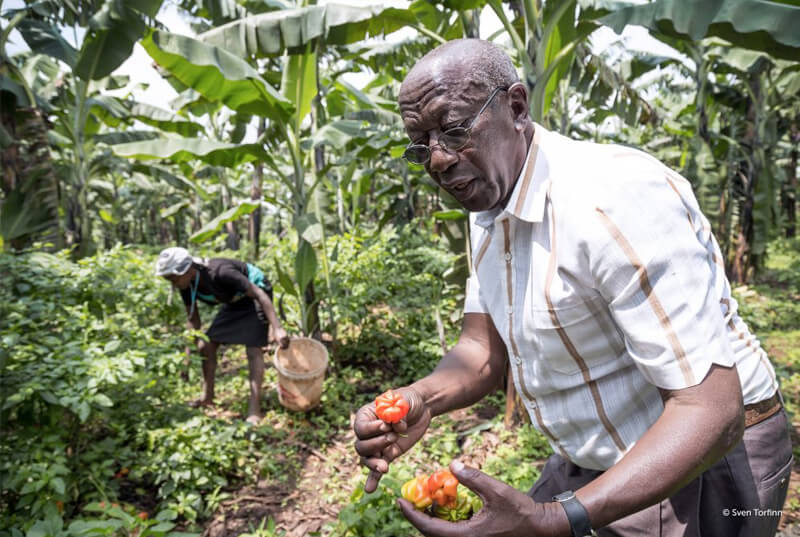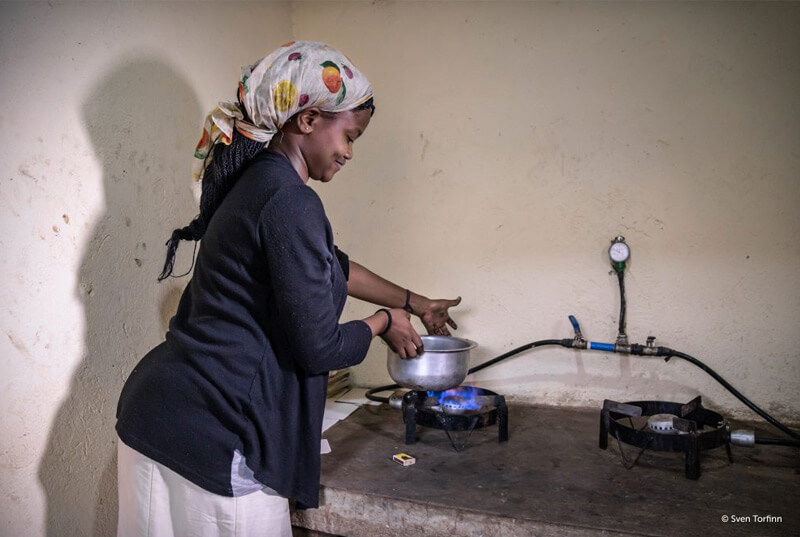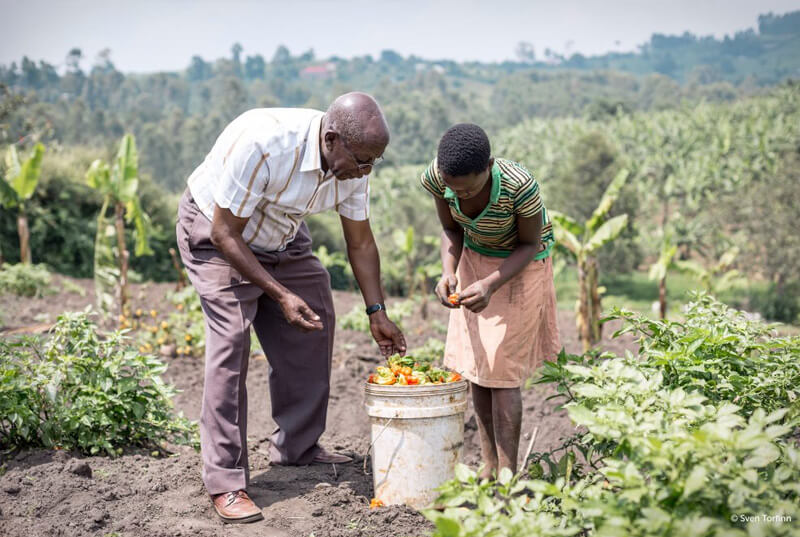Biogas in Uganda
This offset project invests in improving the access to biogas amongst rural households with a small farm in Uganda. Hivos has introduced the ‘Africa Biogas Partnership Programme’ (ABPP) in collaboration with SNV the Netherlands. This initiative stimulates and helps people change from cooking on open fires to cooking with biogas.
Background
Over a third of the global population relies on open fires for cooking. This usually happens indoors. These fires produce a lot of smoke, which is dangerous to people’s health. Globally, four million people die from respiratory diseases caused by cooking over an open fire. This is more than the collective death toll of tuberculosis, malaria and aids. In addition, meal preparation on open fires has a huge impact on the climate, and on the social development of women and children. It is them, after all, who tend to be responsible for the collection of firewood and meal preparation.
The project
These offset projects provides access to biogas installations in rural areas in Uganda. They are installed on recipients’ land by local construction companies. Even if a family owns just two cows, these digesters can generate enough gas for cooking and lighting. After the manure is placed in the digester, it turns it into biogas that is piped to people’s homes, where it can be used for cooking or lighting. The by-product – a bio-slurry – is a powerful organic fertiliser. With that, the farmer can replace expensive, chemical fertilisers with own organic slurry. Quite a few families have also connected toilets to their biogas digester, which then turns the human waste into sustainable energy as well.
Collaboration
Climate Neutral Group, in collaboration with Hivos, helps improve access to such biogas installations by investing in the project through the purchase of carbon credits. Local entrepreneurs are trained to build, install, and maintain the digesters. Households invest in the systems themselves and are supported by the project. Remaining costs are covered by micro-loans. This project carries a Gold Standard certification.



